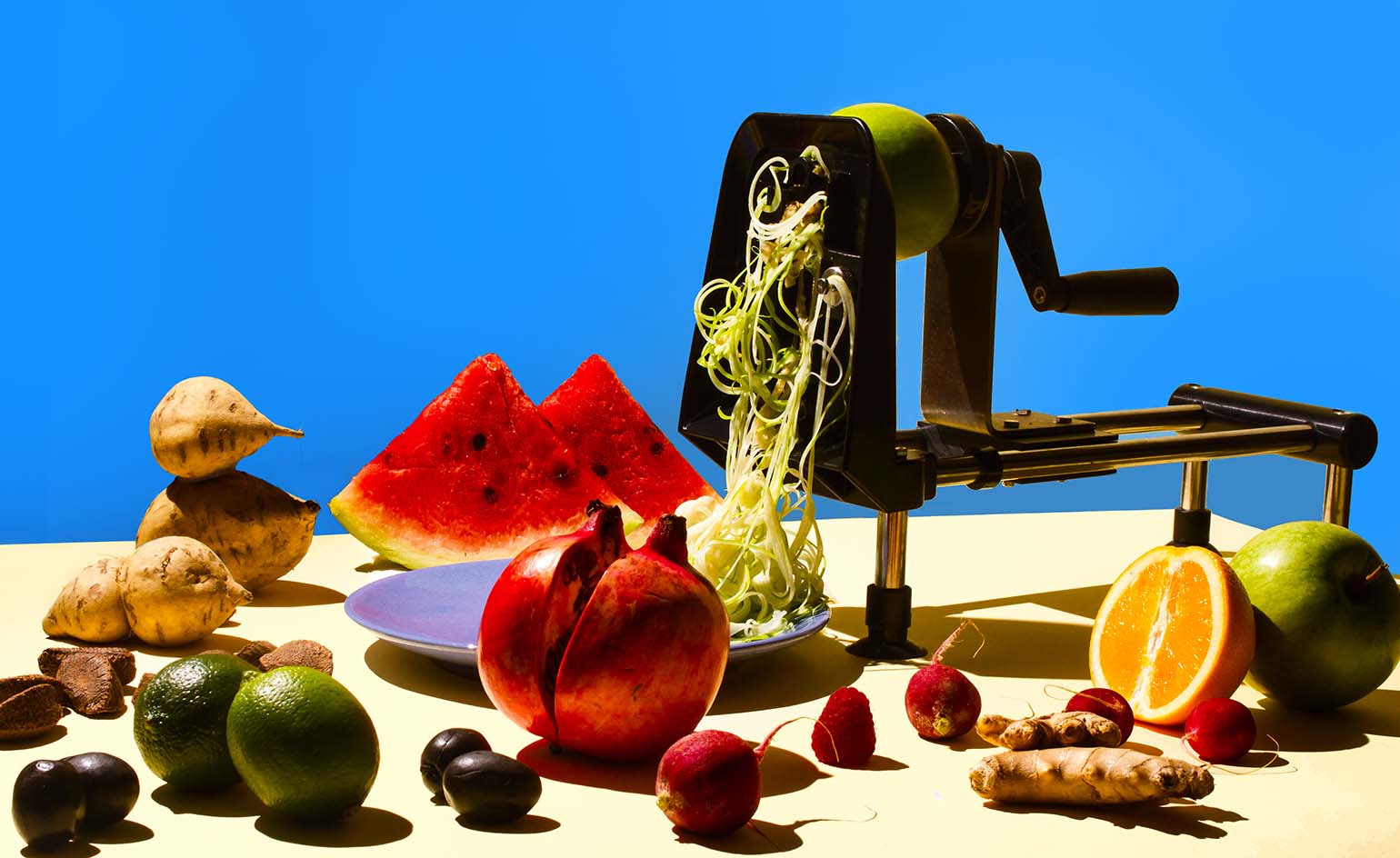How your diet can improve your productivity
Eat your way to better brain function. New York-based clinical herbalist Rachelle Robinett shares the best food, herbs, and supplements to naturally improve your productivity

Your brain consumes more energy than any other organ, using about 20 per cent of your nutritional energy to function. As New York-based nutritionist Rachelle Robinett is quick to point out, this means ‘it needs food!’ But what food, exactly, can you eat to boost your brain function? And can your diet really help to improve your productivity?
Robinett is a herbalist, health practitioner and founder of Pharmakon Supernatural, whose work focuses on offering practical, plant-based solutions for a balanced lifestyle. Below, she shares her insight into how food, herbs, and supplements can help improve brain function and get you working more effectively than ever.
Wallpaper*: How can diet improve your productivity?
Rachelle Robinett:
- The better the nutrition, the better the brain function. Stable blood sugar is also important for focus, as spikes and crashes can cause jitters, anxiety, brain fog, distractedness and sleepiness.
- I also love to relay the relationship between neurochemicals (like serotonin and dopamine) on focus, and other seemingly unrelated experiences, like carb cravings. For example, sugar cravings are often actually cravings for serotonin, which is released when we eat pleasurable or high-carbohydrate foods. Supplementing with tryptophan is a neat way to satisfy that need without a cookie, and tactics like that abound. Regarding focus, dopamine is a main player, which we also know from flow-state research that implicates the neurotransmitter as key for clarity, creativity, and the groove of productivity. I love herbs like rhodiola and mucuna pruriens (aka dopamine bean) for supporting that aspect of getting things done.
- Overall, the best nutrition for our brain is nutrient-dense, balanced in slow carbs, high-quality fats (especially omega fatty acids from fish or algae), and a touch of protein. I advocate for [a] mostly plant-based [diet], and as free of processed and refined [foods] as possible.
- Also, it's important not to forget gut health. The gut-brain-axis is a very real thing and the state of our digestion has direct implications for brain function.
W*: What things should people be eating to boost their productivity?
RR:
- Smoothies made with fruit, fibre (try berries, flax, chia, and prebiotics like acacia or psyllium husk), a little plant-based protein, some greens (or greens powder) and a spice or two (I love cinnamon for blood-sugar stability).
- High-quality fish or omega oil supplements.
- All the vegetables. And fruit!
- Half your body weight in ounces of water per day, minimum.
W*: What foods/diets might hurt productivity?
RR:
- Flour (even gluten-free) can be one of the secret saboteurs of productivity and a lot of other health goals if you can't digest it properly. Consider replacing it with any unprocessed plant-based alternative and, depending on how much a part of your life it is now, be prepared for transformation.
- Excess sugar, caffeine, alcohol and other inflammatory food or beverages are really hard on our brain. There’s also good research now that links neuro-inflammation with mental health and mood disorders. (Turmeric is one of my favourite herbs for offsetting this, after nutrition of course.)
W*: Let’s say someone has a busy, stressful day ahead of them – do you have any suggestions for a nutrition plan they should follow on the day or the day before?
RR:
- This is where meal prep wins the day. I recommend a smoothie (see above), hearty (really hearty) vegetable bowls with the option of a little protein (plant-based or otherwise), and lots of great snacks.
- Personally, when I’m writing, I love to chew, so I make big spreads of tons of crunchy raw fruit and vegetables to work my way through. If you like salt, consider olives, sauerkraut, seaweed snacks and salty salads.
- For sweets, aim for fruit, or sweet potato, yams, and plantains. If chocolate is your thing, turn it into a superfoody herbal mocha and sip on it while you work.
W*: Any closing thoughts?
RR:
Wallpaper* Newsletter
Receive our daily digest of inspiration, escapism and design stories from around the world direct to your inbox.
- Sleep is absolutely key, so aim for as much of that as possible. If stress is undermining your work, consider a blend of herbs and supplements that supports HPA-axis balance, and adrenal function. Most of these are longer-term commitments that help to normalise the body’s stress response over time. Sounds like magic, but it’s just nature – which is why I love this work!
Mary Cleary is a writer based in London and New York. Previously beauty & grooming editor at Wallpaper*, she is now a contributing editor, alongside writing for various publications on all aspects of culture.
-
 Kapwani Kiwanga transforms Kvadrat’s Milan showroom with a prismatic textile made from ocean waste
Kapwani Kiwanga transforms Kvadrat’s Milan showroom with a prismatic textile made from ocean wasteThe Canada-born artist draws on iridescence in nature to create a dual-toned textile made from ocean-bound plastic
By Ali Morris
-
 This new Vondom outdoor furniture is a breath of fresh air
This new Vondom outdoor furniture is a breath of fresh airDesigned by architect Jean-Marie Massaud, the ‘Pasadena’ collection takes elegance and comfort outdoors
By Simon Mills
-
 Eight designers to know from Rossana Orlandi Gallery’s Milan Design Week 2025 exhibition
Eight designers to know from Rossana Orlandi Gallery’s Milan Design Week 2025 exhibitionWallpaper’s highlights from the mega-exhibition at Rossana Orlandi Gallery include some of the most compelling names in design today
By Anna Solomon